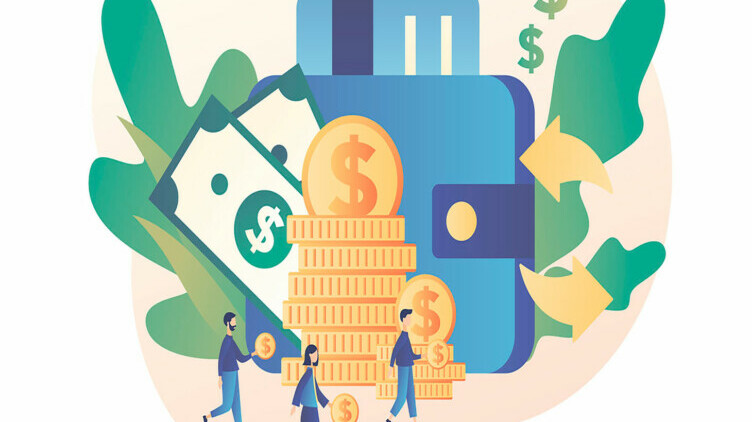NACHA Changes ACH Credit-Push Payments Rules To Fight Scams & Fraud
Placing More Responsibility on the Financial Services Sector to Police Scams & Fraud
Authors:
• SCARS Editorial Team – Society of Citizens Against Relationship Scams Inc.
• NACHA
About This Article
Nacha members have endorsed rules to combat fraud, including business email compromise (BEC), leveraging credit-push payments. These rules mandate ACH payment monitoring for all network participants (excluding consumers), marking a pivotal shift.
Despite not altering liability, recipient financial institutions (RDFIs) gain a monitoring role for the first time. With BEC scams, vendor impersonation, and payroll fraud causing significant losses, the need for action is urgent.
The rules enhance fraud detection across the payment process, empowering financial institutions to act swiftly upon detection. Prompted by Nacha’s “Risk Management Framework for Credit-Push Fraud,” these rules promise broader applicability beyond ACH payments.

NACHA Changes the Rules for Banking that make use of Credit-Push ACH Payments
New Rules
The approval of new rules by Nacha members marks a significant milestone in the ongoing battle against fraud, particularly for both consumer and business victims in the U.S. With the prevalence of scams like business email compromise (BEC) on the rise, these rules are designed to bolster the defenses of the ACH Payments Network against fraudulent activities that involve credit-push payments. By establishing a baseline of ACH payments monitoring for all parties involved in the network, except consumers, these rules represent a proactive approach to mitigating fraud risks.
The impact of fraud, especially BEC scams, cannot be understated. With billions of dollars lost annually due to such schemes, financial institutions and businesses alike must take decisive action to combat this threat. The newly approved rules empower receiving financial institutions (RDFIs) with a defined role in monitoring the ACH payments they receive, enabling them to detect and respond to fraudulent transactions more effectively. This collaborative effort, driven by Nacha’s commitment to self-governance, reflects a collective determination to safeguard the integrity of the payment system and protect both businesses and consumers from financial harm.
According to NACHA
Nacha members have approved a set of rules intended to reduce the incidence of frauds, such as business email compromise (BEC), that make use of credit-push payments. The new rules establish a base-level of ACH payments monitoring on all parties in the ACH Network (except consumers). While the new rules do not shift the liability for ACH payments, for the first time receiving financial institutions (RDFIs) will have a defined role in monitoring the ACH payments they receive.
“All participants in the ACH Payments Network have a part to play in reducing the incidence of fraud, and recovering when fraud has occurred,” said Jane Larimer, Nacha President and CEO. “I applaud Nacha’s members for taking this important step of self-governance.”
BEC (Business Email Compromise,) vendor impersonation and payroll impersonation are some examples of fraud that result in payments being “pushed” from a payer’s account to the account of a fraudster. The FBI’s Internet Crime Complaint Center’s 2023 annual report found there were 21,489 BEC complaints in 2023 totaling $2.9 billion in reported losses, making it the second-costliest type of cybercrime. According to the Association of Financial Professionals, “Business Email Compromise (BEC) scams are still highly prevalent and are the root cause of payment fraud at a majority of organizations.”
The new rules follow the flow of a credit-push payment to promote the detection of fraud from the point of origination through the point of receipt at an account at the RDFI. When fraud is detected, the rules empower the originating financial institution (ODFI) to request the return of the payment for any reason; the RDFI to delay funds availability (within the limits of Regulation CC) to examine the payment more closely; and the RDFI to return a suspicious transaction on its own initiative without waiting for a request or a customer claim. An additional rule facilitates transaction monitoring by RDFIs by applying a standard transaction description for ACH credits used for payroll payments.
The impetus for the newly approved Rules came in late 2022 when Nacha released its strategy “Risk Management Framework for the Era of Credit-Push Fraud.” The strategy expanded the focus of fraud detection and prevention to include frauds that use credit-push payments, including ACH credits. While the new rules apply to ACH payments, their principles and techniques are more broadly applicable to all types of credit-push payments.
About Nacha
Nacha governs the thriving ACH Payments Network in the United State, the payment system that drives safe, smart, and fast Direct Deposits and Direct Payments with the capability to reach all U.S. bank and credit union accounts. There were 31.5 billion ACH Network payments made in 2023, valued at $80.1 trillion. Through problem-solving and consensus-building among diverse payment industry stakeholders, Nacha advances innovation and interoperability in the payments system. Nacha develops rules and standards, provides industry solutions, and delivers education, accreditation, and advisory services.
Please Rate This Article
Please Leave Us Your Comment
Also, tell us of any topics we might have missed.
Thank you for your comment. You may receive an email to follow up. We never share your data with marketers.
-/ 30 /-
What do you think about this?
Please share your thoughts in a comment above!
More Related Information:
- U.S. FedNOW Is Launched (scamsnow.com)
- New York State Goes After Citibank For Failing To Protect & Refund To Scam Victims – January 2024 (scamsnow.com)
- 3 Smart Bank Strategies to Stop Scams (scamsnow.com)
- A Proposal from SCARS to Reduce Bank Wire/Money Transfer Fraud (scamsnow.com)
- Family Takes Legal Action Against Banks After Navy Veteran Loses $3.6 Million in Wire Fraud Scheme (scamsnow.com)
- Bank Customer Interventions (scamsnow.com)
-/ 30 /-
What do you think about this?
Please share your thoughts in a comment above!
SCARS LINKS: AgainstScams.org RomanceScamsNOW.com ContraEstafas.org ScammerPhotos.com Anyscam.com ScamsNOW.com
reporting.AgainstScams.org support.AgainstScams.org membership.AgainstScams.org donate.AgainstScams.org shop.AgainstScams.org
youtube.AgainstScams.org linkedin.AgainstScams.org facebook.AgainstScams.org
ARTICLE RATING
TABLE OF CONTENTS
CATEGORIES
MOST POPULAR COMMENTED ARTICLES
POPULAR ARTICLES
U.S. & Canada Suicide Lifeline 988
![NavyLogo@4x-81[1]](https://scamsnow.com/wp-content/uploads/2025/04/NavyLogo@4x-811.png)
ARTICLE META
WHAT PEOPLE ARE TALKING ABOUT LATEST SITE COMMENTS
See Comments for this Article at the Bottom of the Page
on Substance Abuse Susceptibility And Scam Victims – 2024: “It is understandable how some would feel that alcohol or substance abuse would be helpful in handling their feelings after…” Jul 1, 20:36
on Scam Victims Use Work To Avoid Healing: “The last 6 years have been the most difficult of my life. The pandemic, having both parents in the hospital…” Jun 29, 18:38
on Entitlement Mentality And How Scam Victims Often Lose Their Path To Recovery – 2024: “Thank you for this discussion of entitlement. I can see from the descriptions listed that I have not felt entitlement.…” Jun 29, 18:22
on Samurai Wisdom and Rituals for Clearing the Mind After Scam Trauma – 2025 – [VIDEOS]: “A great guide on how to move forward in our recovery process with a calm mind, cleansed on an ongoing…” Jun 28, 07:34
on Delayed Gratification and Patience in Scam Victim Recovery – 2025 – [VIDEOS]: “We want to recover quickly and… we make new mistakes. How not to speed up the recovery process, how to…” Jun 28, 06:41
on The Unique Injury Of Betrayal Trauma On Scam Victims – 2024: “Primarily because you did not see it coming” Jun 27, 23:57
on Changes In A Scam Victim’s Life: “I really detest the way my trust in others has been affected by the scamming I went through. I used…” Jun 27, 14:47
on The Unique Injury Of Betrayal Trauma On Scam Victims – 2024: “Betrayal Trauma is the worst feeling ever. Why does it seem so much worse when a scammer does that to…” Jun 27, 14:34
on EMDR Therapy For Scam Victims’ Trauma – A Part Of The Recovery Process For Many – 2024: “Very comprehensive article explaining all aspects of EMDR. I’d only heard of it before and now I have a much…” Jun 26, 19:01
on Forgiving Yourself After Surviving a Romance or Investment Scam – 2025: “Thank you for this valuable article. Self-forgiveness was for me the biggest step that led to my recovery. That also…” Jun 26, 17:28
on Counseling And Your Native Language: “These points make perfect sense. I can’t imagine trying to express complex emotions in a second language. I realize many…” Jun 26, 16:05
on Thought-Terminating Cliches – How What You and Others Say Stops Critical Thinking and Recovery for Scam Victims – 2025: “I didn’t realize that these “innocent phrases” clichés ending thoughts, can have such effect / negative -inhibiting / on our…” Jun 26, 14:48
on Scam Victim Resistance In Support Groups Therapy Or Counseling Can Destroy Opportunities For Recovery – 2024: “Working with either a support group or therapist to me means a self commitment to actively participating in the therapy.…” Jun 24, 21:01
on ‘I Just Want To Forget It’ – Denial & Avoidance Are Natural But Will Not Help Scam Victims On Their Path To Recovery From Scams – 2024: “My financial loss, the shock and betrayal of the crime ending all combined to fray my nerves and spend hours…” Jun 24, 20:10
on You Hate Being Told What To Do? How Your Rebellious Mentality Can Sabotage Your Recovery – 2025: “I am a bit of a rebel, and the moment someone tells me to do something, worse, does it even…” Jun 24, 15:04
on You Hate Being Told What To Do? How Your Rebellious Mentality Can Sabotage Your Recovery – 2025: “You are very welcome” Jun 24, 03:01
on You Hate Being Told What To Do? How Your Rebellious Mentality Can Sabotage Your Recovery – 2025: “This is a great article, which makes perfect sense as to why anyone would resist the help offered to them.…” Jun 23, 20:01
on Scam Victims’ Responsibilities – 2021 [Updated 2025]: “Thank you for this article. As I continue my journey, I focus on the here and now and let the…” Jun 21, 16:26
on Scam Victims Avoid Or Escape The Aftermath Of Scams – How Denial And Distraction Avoid Confronting Reality – 2024: “In the earliest days after my crime I felt powerless, helpless and weak. I had been through so much in…” Jun 21, 14:46
Important Information for New Scam Victims
Please visit www.ScamVictimsSupport.org – a SCARS Website for New Scam Victims & Sextortion Victims
SCARS Institute now offers a free recovery program at www.SCARSeducation.org
Please visit www.ScamPsychology.org – to more fully understand the psychological concepts involved in scams and scam victim recovery
If you are looking for local trauma counselors, please visit counseling.AgainstScams.org
If you need to speak with someone now, you can dial 988 or find phone numbers for crisis hotlines all around the world here: www.opencounseling.com/suicide-hotlines
Statement About Victim Blaming
Some of our articles discuss various aspects of victims. This is both about better understanding victims (the science of victimology) and their behaviors and psychology. This helps us to educate victims/survivors about why these crimes happened and not to blame themselves, better develop recovery programs, and help victims avoid scams in the future. At times, this may sound like blaming the victim, but it does not blame scam victims; we are simply explaining the hows and whys of the experience victims have.
These articles, about the Psychology of Scams or Victim Psychology – meaning that all humans have psychological or cognitive characteristics in common that can either be exploited or work against us – help us all to understand the unique challenges victims face before, during, and after scams, fraud, or cybercrimes. These sometimes talk about some of the vulnerabilities the scammers exploit. Victims rarely have control of them or are even aware of them, until something like a scam happens, and then they can learn how their mind works and how to overcome these mechanisms.
Articles like these help victims and others understand these processes and how to help prevent them from being exploited again or to help them recover more easily by understanding their post-scam behaviors. Learn more about the Psychology of Scams at www.ScamPsychology.org
SCARS INSTITUTE RESOURCES:
If You Have Been Victimized By A Scam Or Cybercrime
♦ If you are a victim of scams, go to www.ScamVictimsSupport.org for real knowledge and help
♦ Enroll in SCARS Scam Survivor’s School now at www.SCARSeducation.org
♦ To report criminals, visit https://reporting.AgainstScams.org – we will NEVER give your data to money recovery companies like some do!
♦ Follow us and find our podcasts, webinars, and helpful videos on YouTube: https://www.youtube.com/@RomancescamsNowcom
♦ Learn about the Psychology of Scams at www.ScamPsychology.org
♦ Dig deeper into the reality of scams, fraud, and cybercrime at www.ScamsNOW.com and www.RomanceScamsNOW.com
♦ Scam Survivor’s Stories: www.ScamSurvivorStories.org
♦ For Scam Victim Advocates visit www.ScamVictimsAdvocates.org
♦ See more scammer photos on www.ScammerPhotos.com
You can also find the SCARS Institute on Facebook, Instagram, X, LinkedIn, and TruthSocial
Psychology Disclaimer:
All articles about psychology and the human brain on this website are for information & education only
The information provided in this and other SCARS articles are intended for educational and self-help purposes only and should not be construed as a substitute for professional therapy or counseling.
Note about Mindfulness: Mindfulness practices have the potential to create psychological distress for some individuals. Please consult a mental health professional or experienced meditation instructor for guidance should you encounter difficulties.
While any self-help techniques outlined herein may be beneficial for scam victims seeking to recover from their experience and move towards recovery, it is important to consult with a qualified mental health professional before initiating any course of action. Each individual’s experience and needs are unique, and what works for one person may not be suitable for another.
Additionally, any approach may not be appropriate for individuals with certain pre-existing mental health conditions or trauma histories. It is advisable to seek guidance from a licensed therapist or counselor who can provide personalized support, guidance, and treatment tailored to your specific needs.
If you are experiencing significant distress or emotional difficulties related to a scam or other traumatic event, please consult your doctor or mental health provider for appropriate care and support.
Also read our SCARS Institute Statement about Professional Care for Scam Victims – click here
If you are in crisis, feeling desperate, or in despair, please call 988 or your local crisis hotline.
More ScamsNOW.com Articles
A Question of Trust
At the SCARS Institute, we invite you to do your own research on the topics we speak about and publish. Our team investigates the subject being discussed, especially when it comes to understanding the scam victims-survivors’ experience. You can do Google searches, but in many cases, you will have to wade through scientific papers and studies. However, remember that biases and perspectives matter and influence the outcome. Regardless, we encourage you to explore these topics as thoroughly as you can for your own awareness.















![scars-institute[1]](https://scamsnow.com/wp-content/uploads/2025/04/scars-institute1.png)
![niprc1.png1_-150×1501-1[1]](https://scamsnow.com/wp-content/uploads/2025/04/niprc1.png1_-150x1501-11.webp)

Leave a Reply